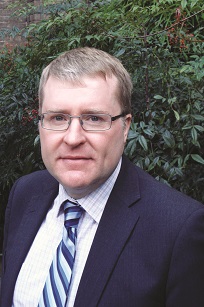Quality, morale and financial position are top concerns for finance directors
In the previous report – covering the halfway point of the financial year – the fund said 50% of trust finance directors and 59% of CCG finance leads thought care had got worse. But at the end of the third quarter, this had increased to 63% of both provider and commissioner finance chiefs.
Provider finance directors put the decline in their opinion of service quality down to a number of factors, including lack of staff, the decommissioning of services without a suitable alternative and lengthening waiting times.
The survey received responses from 78 provider finance directors and 27 clinical commissioning group chief finance officers (covering 33 CCGs).
Trust finance directors said their biggest concerns were bed occupancy and staff morale, while they remain troubled by delayed transfers of care and A&E. The failure to meet the four-hour A&E waiting time standard continued to be CCG finance leads’ main concern, followed by the pressure on general practice.
More than half of directors forecast a 2017/18 year-end deficit, while 82% said meeting their forecast position would depend on significant financial support. And 53% of those expecting to receive sustainability and transformation funding still forecast a deficit at year-end.
More than a third (36%) of CCGs expected to overspend in 2017/18 and 27% said they expected to cancel or delay spending plans to support their year-end position. The fund said there was a threat to the CCG risk reserve – 0.5% of CCGs’ allocation that is uncommitted – with 21% of CCGs saying they were relying on the funding being returned to them rather than being used to offset provider deficits.
The King’s Fund was concerned about operational performance and the impact of the way headline A&E performance is measured – an average of type 1 or major A&Es, type 2 single specialty A&Es, and type 3 or minor injury units. Combining the figures was increasingly misleading, it said, neither reflecting the deterioration of performance in type 1, nor the excellent performance against the four-hour standard in type 3.
Richard Murray (pictured), the fund’s policy director, said: ‘With demand for services likely to remain high, it’s very unlikely that meeting [waiting time] targets will become more achievable. The waiting time standards should not be abandoned but the NHS needs to ensure the way they are implemented does not leave patients who are not treated within the time limits facing long waits for treatment.’
NHS Providers deputy chief executive Saffron Cordery (pictured) said it was becoming increasingly difficult to ensure patients receive safe and timely care ‘when demand for treatment is growing so quickly, and funding is so tight.
‘It is also disappointing to see so many people waiting longer than 18 weeks for planned routine operations. It feels like we are losing the hard-won gains of the last decade. We have reached a watershed moment. We need to see urgent steps towards establishing a long term funding solution for health and social care.’
Related content
We are excited to bring you a fun packed Eastern Branch Conference in 2025 over three days.
This event is for those that will benefit from an overview of costing in the NHS or those new to costing and will cover why we cost and the processes.